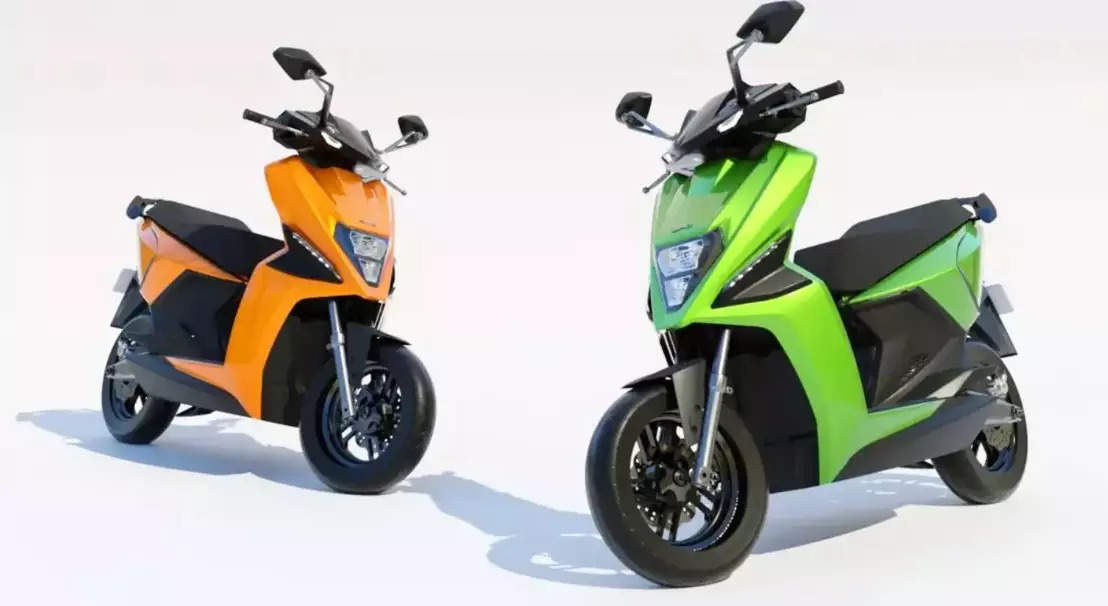
New Delhi: For 5-year old Simple Energy, business is gushing back as the EV startup has secured a fresh round of Series-A funding of USD 20 million last month. However, the plenty of cash has not come in without learnings and that is also what has prompted the Founder and CEO, Suhas Rajkumar to alter his priorities.
“We were in full gear last year, but unfortunately, we could not scale to a level that we wished to. A kind of funding winter was there for the entire industry. However, it is a part of the journey, and now good times have come back for us,” he said.
Last year, ETAuto reported about Rajkumar’s ambitious plans of scaling up. The company was targeting to raise funds by November. Now, with the new funding round it sits in a comfortable position for the next two years. Its total funding since it was founded in 2019 stands at USD 50 million.
Next six months of the fiscal year remain critical for Simple as it needs to walk the talk for its customers, investors and the brand alike. The startup is targeting a revenue of about INR 150 crore in FY25.
With the fresh funding, the company wants to scale up the production of its two products– Simple One and Simple Dot One. The funds will also be utilized for retail expansion and R&D for new product development.
Product Delivery
Starting June last year, Simple began its scooter deliveries to about 200 customers. Until now, it has sold close to 850-900 scooters. The company has just one retail network in Bangalore, which it plans to expand to 25 across various cities including Mumbai, Chennai, Hyderabad, Pune, amongst other cities.
Considering multiple delays in the delivery, Rajkumar accepted that Simple has “lost some value in terms of the timeline”, but this business “initially takes time to fully go out in the market”.
It may be noted that the company launched its first product Simple One with a starting price of INR 1.45 lakh last year. It had earlier showcased this scooter on August 15, 2021 with a price tag of INR 1.10 lakh (all prices, ex-showroom). Then, Simple had promised customer deliveries to begin in December 2021. This was deferred several times to June 2022, and September 2022, before finally beginning from June last year.
With new retail stores, the startup is looking to clock average sales of 1,500 scooters per month.
According to the EV registrations on VAHAN, Ola Electric has taken up the largest share of the electric two wheeler market for the ongoing calendar year. This is followed by TVS Motor, Bajaj Auto, Ather Energy and Hero MotoCorp consecutively.
New Product Development
The focus for this year is to scale and expand across major cities. Alongside, Simple is working on introducing a ‘family scooter’ in FY26. ETAuto learns that this could be priced close to INR 1 lakh.
Meanwhile, Rajkumar has stalled the export plan for about 2-3 years now as “there is a lot of opportunity in the domestic market”.
When asked if the company is still going strong on bringing an electric motorcycle, he was quite skeptical because there is no “business viability coming in from electric motorcycle business” as of today.
Recently, Ola Electric has launched its Roadster series of e-motorcycles, with aggressive pricing. The company has also shared a roadmap of introducing motorcycles in the electric segment in different range and price categories. Other players in the segment include Ultraviolette and Revolt.
“The electric scooter market is eating up the 100-150 cc bike segment, as the consumers in this category are driven by purpose and value. On the higher cc, we do not see the viability of EVs as of today. So, we do not have any concrete plans for e-motorcycles as of now and want to sit on the backseat to observe how this market evolves,” Rajkumar said.
Additionally, he did not deny the company’s plan to venture into electric cars. However, did not give any details.
Rival Ola Electric was also known to have been working on an electric car, plans for which have now been suspended. Recently, its Founder said he wants to solely focus on two wheelers.
Independence and Innovation
Industry experts suggest consolidation and collaboration is the key to future growth in the EV industry. This trend may be seen for Hero MotoCorp, which is the largest shareholder for Ather Energy. Following the trend is also TVS Motor which has investments in Ultraviolette, and Bajaj Auto which has a stake in Yulu Bikes.
However, Rajkumar is clear about his priorities and is not on a lookout for any strategic partnership “as bringing in a larger player on board would also mean losing out on innovation”.
He feels that this is a good time to be a part of the Indian EV market as the cost of cells and thereby the batteries have been reducing, addressing the concerns about higher cost of ownership of EVs compared to ICEs.
“It is a good time to be in the market, but one needs to have their product out,” he said.
“For startups who are still in the prototype stage and have nothing to offer in the next 1-2 years, it is too late of a game for them– the bus has already passed,” he added.
Simple Energy employs about 400 people and has a capacity of 3 lakh units at its facility in Shoolagiri, in the Krishnagiri district of Tamil Nadu.















